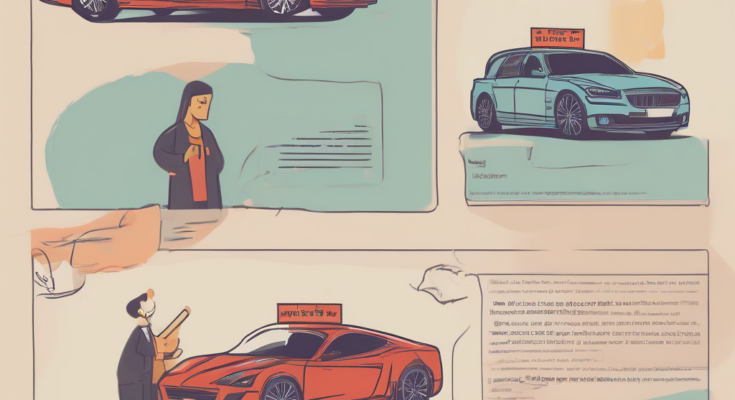Donate Your Car: A Comprehensive Guide to Charitable Giving
Donating your car to charity is a rewarding way to declutter your life, support a cause you believe in, and potentially receive a significant tax deduction. However, the process isn’t always straightforward. This comprehensive guide will walk you through everything you need to know, from choosing the right charity to understanding the tax implications.
Choosing the Right Charity
Selecting a reputable charity is the first and most crucial step. Don’t rush this decision; thorough research is essential. Consider these factors:
- Mission and Values: Does the charity’s mission align with your values? Do you feel confident in their approach to addressing the problem they tackle?
- Reputation and Transparency: Research the charity’s history and track record. Look for reviews and ratings from organizations like Charity Navigator, GuideStar, and the Better Business Bureau. A transparent organization will openly share its financial information and program impact.
- Financial Efficiency: Examine the charity’s financial statements to assess how effectively it uses its donations. Look for a high percentage of funds going directly to programs rather than administrative costs.
- Specific Programs: Does the charity have specific programs that resonate with you? Some charities utilize donated vehicles for direct services, while others sell them to raise funds.
- Geographic Focus: Does the charity operate locally, nationally, or internationally? Consider whether you prefer to support a local organization or one with a broader reach.
The Donation Process: Step-by-Step Guide
Once you’ve chosen a charity, the donation process generally involves these steps:
- Contact the Charity: Contact the charity directly to inquire about their vehicle donation program. They may have specific requirements or procedures. Inquire about the pickup process and necessary documentation.
- Gather Necessary Documents: This typically includes your vehicle’s title, registration, and proof of insurance (if applicable). The charity will provide a detailed list of the documents they require.
- Schedule a Pickup: Arrange a convenient time and location for the charity to pick up your vehicle. Some charities offer towing services, while others may require you to arrange transportation.
- Sign the Donation Receipt: Upon pickup, sign a donation receipt acknowledging the transfer of ownership. This receipt is crucial for claiming your tax deduction.
- Follow Up (if necessary): Contact the charity to confirm receipt of your donation and inquire about the tax deduction paperwork.
Tax Implications of Donating Your Car
Donating your car can result in a valuable tax deduction, but understanding the rules is essential. The amount you can deduct depends on the vehicle’s fair market value (FMV).
- Fair Market Value (FMV): This is the price a willing buyer would pay a willing seller in an open market. You’ll need to determine the FMV of your car, often using resources like Kelley Blue Book or Edmunds. If the charity sells the vehicle, the deduction will be based on the proceeds, rather than your FMV determination.
- Deduction Limits: The IRS limits the amount you can deduct. If the charity sells your car for more than $500, you can deduct only the amount received by the charity. If the sale is less than $500, you can only deduct the amount of proceeds. If the charity uses it, you can deduct the FMV.
- Documentation: Maintain meticulous records of your donation, including the donation receipt, the vehicle’s title, and any documentation supporting your FMV determination. These documents will be needed to support your tax deduction.
- Form 8283: If your deduction is over $500, you’ll need to file IRS Form 8283 along with your tax return. This form provides additional details about the donation.
- Consult a Tax Professional: For complex situations or if you have questions about your tax liability, consult a qualified tax advisor. They can provide personalized guidance based on your individual circumstances.
Alternatives to Direct Donation
If direct donation to a charity isn’t suitable, you have alternative options:
- Selling the Car and Donating the Proceeds: This provides more control over the donation amount. You can sell your car privately or through a dealership and then donate the proceeds to your chosen charity.
- Trading Your Car In: When purchasing a new vehicle, you might be able to trade in your old car. You can then donate the money received from the trade-in to your chosen charity. It’s crucial to compare prices and what you would receive via a trade in vs a direct sale and donation.
Avoiding Scams
Unfortunately, some organizations exploit the goodwill of donors. Be wary of charities that:
- Use high-pressure tactics: Legitimate charities rarely resort to aggressive or manipulative fundraising techniques.
- Are vague about their mission or financials: Reputable charities are transparent about their activities and finances.
- Request personal information upfront: Legitimate charities usually only request personal information after you’ve initiated contact.
- Promise unrealistic tax benefits: Be cautious of charities promising overly generous tax deductions.
Preparing Your Vehicle for Donation
While you don’t need to meticulously detail your vehicle, a clean car is appreciated and can sometimes affect the sale price if the charity does sell it.
- Remove Personal Belongings: Empty the car of all personal belongings before the pickup.
- Basic Cleaning (Optional): A quick clean can improve the car’s appearance, though it isn’t typically required.
Frequently Asked Questions (FAQs)
Here are some commonly asked questions about donating a car to charity:
- Q: Can I donate a car that doesn’t run? A: Yes, most charities accept non-running vehicles. However, be sure to check with the specific charity before making the donation.
- Q: What if my car has significant damage? A: Some charities will still accept vehicles with damage, but you might receive a lower tax deduction. It is best to inquire with the charity directly to see if it is accepted.
- Q: How long does the process take? A: The process usually takes a few weeks, from contacting the charity to receiving your tax deduction paperwork. Timing can vary depending on the charity and your location.
- Q: What if I owe money on my car? A: You’ll need to settle the outstanding loan before donating the vehicle. The charity cannot accept a car that has an outstanding loan.
- Q: Can I donate a motorcycle or RV? A: Many charities accept a wide variety of vehicles, but it’s best to check with your chosen charity to confirm whether they accept your specific type of vehicle.
Conclusion (Omitted as per instructions)



